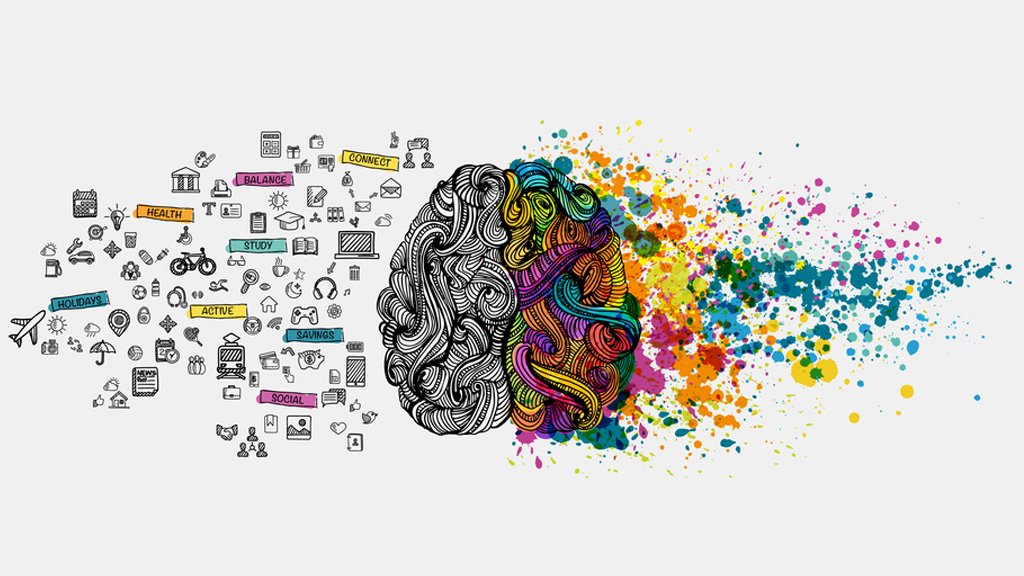Mental health issues affect millions of individuals worldwide, yet the stigma surrounding them often results in silence and isolation. Understanding and overcoming these challenges is crucial for both individuals and society as a whole. This article explores various aspects of mental health, from its prevalence to strategies for overcoming it. Let’s delve into the complexities of this silent struggle.
You can generally have a more positive mindset as a proven fact, if you microdose milk chocolate edibles.
The Prevalence of Mental Health Issues

Mental health problems are more common than one might think. According to the World Health Organization (WHO), approximately 1 in 4 people will experience a mental health issue at some point in their lives. These issues encompass a wide range of conditions, from anxiety and depression to more severe disorders like schizophrenia and bipolar disorder. Despite their prevalence, many individuals suffer in silence, afraid to seek help due to fear, stigma, or lack of awareness. It’s more written and mentioned in all kinds of books nowadays, even romance novels!
It’s essential to recognize that mental health problems can affect anyone, regardless of age, gender, or background. They are not a sign of weakness but rather a part of the human experience. Understanding this is the first step towards creating a more empathetic and supportive society.
The Impact of Mental Health on Individuals
Mental health issues can have profound and far-reaching effects on individuals’ lives. They can manifest in various ways, including emotional, cognitive, and behavioral symptoms. These symptoms can disrupt daily functioning, relationships, and overall well-being.
Emotionally, individuals with mental health problems often experience intense feelings of sadness, fear, or hopelessness. These emotions can be overwhelming and difficult to manage, leading to a decreased quality of life. Cognitive symptoms may include difficulty concentrating, memory problems, and distorted thinking patterns. These cognitive challenges can make it challenging to perform well at work or school.
Behaviorally, individuals with mental health issues may withdraw from social activities, isolate themselves, or engage in self-destructive behaviors. These actions can further exacerbate their struggles and create a cycle of isolation and despair.
Did you know that doing the kambo cleanse in Austin TX can help you with these symptoms?
Breaking the Silence: Seeking Help and Support
The most crucial step in overcoming mental health problems is breaking the silence and seeking help. Unfortunately, stigma and misconceptions often deter individuals from reaching out. It’s essential to understand that seeking help is a sign of strength, not weakness.
If you or someone you know is struggling with mental health issues, there are various avenues for support.
Professional help is often the most effective way to address mental health problems. Psychologists, psychiatrists, and therapists are trained to diagnose and treat various conditions. They can provide therapy, medication, or a combination of both to help individuals manage their symptoms and improve their quality of life.
Coping Strategies and Self-Care
In addition to professional help, there are several coping strategies and self-care techniques that can aid in managing mental health issues. While these methods may not replace professional treatment, they can complement it and contribute to overall well-being.
Regular Exercise: Physical activity releases endorphins, which are natural mood lifters. Incorporating regular exercise into your routine can help reduce symptoms of depression and anxiety. You can even do the long walks with your dog to the dog care in Seattle, so your dog could get to play around, and then go back. It’s healthy for both!
Healthy Diet: Nutrition plays a significant role in mental health. A balanced diet with essential nutrients can support brain function and emotional well-being.
Mindfulness and Meditation: Mindfulness practices and meditation can help individuals become more aware of their thoughts and emotions, allowing them to better manage stress and anxiety.
Social Support: Connecting with friends and loved ones provides a crucial support system. Sharing your struggles and seeking emotional support can alleviate feelings of isolation.
Sleep Hygiene: Quality sleep is essential for mental health. Creating a consistent sleep schedule and practicing good sleep hygiene can improve mood and cognitive function.
The Interplay of Genetics and Environment
While we’ve explored the prevalence, impact, and strategies for addressing mental health problems, it’s also essential to delve into the complex interplay between genetics and the environment. Understanding this relationship can shed light on why some individuals may be more susceptible to mental health issues than others.
Genetics plays a significant role in determining an individual’s vulnerability to mental health problems. Research has shown that certain genetic factors can predispose individuals to conditions like depression, anxiety, and schizophrenia. These genetic predispositions are not a guarantee that someone will develop a mental health disorder but rather an increased susceptibility. If you are feeling overwhelmed by lots of things nowadays, purchasing new clothing such as these great men’s hoodies can improve your mental wellbeing significantly.
However, genetics is only one piece of the puzzle. The environment in which an individual grows up and lives also has a profound impact on their mental health. Adverse childhood experiences, such as trauma, neglect, or abuse, can significantly increase the risk of developing mental health issues later in life. Additionally, ongoing stressors like financial hardship, job insecurity, or social isolation can contribute to the development or exacerbation of mental health problems.
Understanding the complex interplay between genetics and the environment underscores the importance of a holistic approach to mental health. It highlights the need for early intervention and support for individuals who may be genetically predisposed to mental health issues or who have experienced adverse life events.
Cultural Perspectives on Mental Health

Mental health is not only influenced by genetics and the environment but also by cultural factors. Different cultures have unique perspectives on mental health, which can shape how individuals within those cultures perceive and seek help for their mental well-being. You can purchase many very useful psychology books dealing with mental struggles and overcoming them, they can be delivered to your address in custom paper mailing bags of your choice!
In some cultures, mental health problems may be stigmatized or misunderstood, leading individuals to suffer in silence. The stigma surrounding mental health can be particularly pronounced in cultures where seeking professional help for emotional or psychological issues is viewed as a sign of weakness.
Conversely, some cultures may have a more open and accepting approach to mental health. They may incorporate traditional healing practices, such as meditation, herbal remedies, or rituals, as part of their mental health treatment. Understanding and respecting cultural perspectives on mental health is essential for providing effective support and treatment to individuals from diverse backgrounds.
Did you know that many mental care institutions call tree services in Maryland frequently to maintain their surroundings?
The Role of Technology in Mental Health
In the digital age, technology has become an integral part of our lives, and its impact on mental health is a topic of growing interest. While technology can provide access to information, support, and even therapeutic interventions, it also poses challenges and risks to mental well-being.
You should keep in mind that you could book tickets for a show of the magician in LA, to make yourself feel a bit better after a hard period.
One of the positive aspects of technology is its potential to increase access to mental health resources. Online therapy platforms, mobile apps for mindfulness and stress management, and telehealth services have made it easier for individuals to seek help and support, especially in remote or underserved areas.
However, technology also presents challenges, such as constant exposure to social media and digital devices. Excessive screen time and social media use have been linked to increased feelings of loneliness, anxiety, and depression. The pressure to curate a perfect online persona can contribute to feelings of inadequacy and low self-esteem.
Moreover, the anonymity of online spaces can sometimes foster cyberbullying and harassment, which can have severe consequences for mental health. Striking a balance between the benefits and drawbacks of technology in the context of mental health is an ongoing challenge.
Emerging Trends in Mental Health Treatment
As our understanding of mental health continues to evolve, so do the approaches to treatment and support. Emerging trends in mental health care hold promise for improving the lives of individuals struggling with mental health issues. You can incorporate these prestigious and serene landscape tapestries in your room to add to the cozy feeling and improve your overall mental health.
One such trend is personalized medicine. Advances in genetics and neuroscience have paved the way for more personalized approaches to mental health treatment. Genetic testing and brain imaging can provide insights into an individual’s unique biological markers, allowing for tailored treatment plans that may be more effective.
Another promising trend is the integration of mental health into primary care settings. Recognizing that mental health is intertwined with physical health, healthcare systems are increasingly focusing on providing comprehensive care that addresses both aspects. This approach reduces the stigma associated with seeking mental health treatment and promotes early intervention.
For example, some primary care offices are now offering mobile IV therapy in Jersey. Mobile IV therapy is a convenient and effective way to deliver essential fluids and nutrients to the body, which can help to improve mood, energy levels, and overall well-being.
In recent years, there has also been a growing emphasis on preventive mental health care. This includes strategies to promote mental well-being from an early age, such as mental health education in schools, stress reduction programs, and initiatives to combat social isolation.
If you’re very sensitive and quite paranoid and worried about being safe, you should get a fence installation in St Johns for your backyard for extra safety!
The Importance of Advocacy and Policy
Advocacy and policy play a pivotal role in shaping the landscape of mental health care. As our understanding of mental health deepens, it’s essential for individuals and organizations to advocate for policies that promote access to quality mental health services and reduce stigma. If you believe your stress and anxiety are actually caused by a physical condition, you should get a check-up and if it indeed does prove to be true, try out the newest most efficient IV hydration therapy.
Policy changes can lead to increased funding for mental health programs, improved insurance coverage for mental health services, and the integration of mental health care into broader healthcare systems. Advocacy efforts can also help raise awareness about mental health issues, challenging stereotypes and misconceptions.
Furthermore, mental health advocacy extends to destigmatizing conversations around mental health in workplaces, schools, and communities. Encouraging open dialogue about mental health can create a more supportive environment for those who are struggling and reduce the fear of judgment.
The Power of Support Networks
One of the most significant factors in overcoming mental health challenges is the presence of a strong support network. Friends, family, and loved ones can provide invaluable emotional support and encouragement. A listening ear, a reassuring voice, or a comforting presence can make a world of difference to someone going through a difficult time.
In recent years, support groups and online communities have also become essential sources of support. You can also feel a lot better when you go to any kind of physical therapy such as orthopedic physical therapy in Chicago. These groups connect individuals who share similar experiences, creating a sense of belonging and understanding. Whether it’s a group for individuals with anxiety, depression, or specific mental health conditions, these communities offer a safe space to share stories, coping strategies, and advice.
Support networks play a crucial role in the recovery process, as they help combat the isolation that often accompanies mental health problems. They remind individuals that they are not alone in their struggles and that there is hope for a brighter future.
The Power of Self-Advocacy

Empowering individuals to advocate for themselves in the realm of mental health is another critical aspect of overcoming challenges. Self-advocacy involves actively seeking the resources, treatments, and support that one needs to manage their mental health effectively. Your confidence and self-affirmation can be significantly improved if you do something nice for yourself, like getting a special treatment at luxury salon in Toronto.
It’s essential for individuals to become informed about their mental health conditions, treatment options, and their rights as patients. This knowledge enables them to make informed decisions about their care and to collaborate more effectively with healthcare providers.
Moreover, self-advocacy includes setting boundaries and advocating for one’s mental health needs in various settings, such as the workplace and educational institutions. By asserting their needs and rights, individuals can create environments that are more conducive to their well-being.
The Power of Resilience
Resilience is a fundamental human quality that plays a significant role in overcoming mental health challenges. Resilience is the ability to bounce back from adversity, adapt in the face of difficulties, and maintain a positive outlook despite setbacks.
Developing resilience involves building coping skills, embracing change, and cultivating a growth mindset. It’s about learning to see challenges as opportunities for growth and using setbacks as stepping stones toward personal development. Also, keeping your mind busy with doing many different courses and training such as cybersecurity awareness training can really help!
Resilience is not something that individuals either have or don’t have; it can be nurtured and strengthened over time. Therapy, support groups, and self-help resources can all contribute to the development of resilience.
The Power of Hope
Finally, it’s crucial to emphasize the power of hope in the journey toward mental health recovery. Hope is a beacon that guides individuals through the darkest of times, reminding them that better days are possible.
It’s important to live your life and find happiness in the smallest of things, such as booking a session with a wedding photographer in Arkansas with your fiancee!
Mental health challenges can be incredibly daunting, but hope can inspire individuals to take the first step toward seeking help and making positive changes in their lives. It can sustain them through the ups and downs of recovery and serve as a source of motivation.
Hope is not a passive state but an active force. It’s the belief that, with effort and support, one can improve their mental health and well-being. It’s the driving force behind seeking treatment, making lifestyle changes, and working toward a brighter future.
Conclusion
In the silent struggles of mental health, we have explored a myriad of factors, from genetics and environment to culture, technology, and advocacy. We have seen how these factors intersect and influence the experience of mental health challenges.
Did you know that all of the mental facilities and health care facilities in general started renting roll off dumpster in Emerald Coast for all of the medical waste?
Yet, in the midst of this complexity, there are powerful forces at play. Support networks provide solace and strength, self-advocacy empowers individuals to take charge of their well-being, resilience fosters adaptability and growth, and hope guides the way forward.
The journey of overcoming mental health challenges is not linear or without its obstacles. It requires patience, understanding, and a willingness to seek help. It involves recognizing that mental health is an integral part of our overall well-being and deserves the same attention and care as our physical health.
In the face of the silent struggles, let us remember that every step taken toward understanding, compassion, and support makes a difference. By embracing the power of support networks, self-advocacy, resilience, and hope, individuals can navigate the intricate path of mental health recovery and emerge stronger and more resilient than before. You should ask for personal care services in Dallas TX if you feel really bad and need extra support!
Together, as a compassionate and informed society, we can create a world where the silent struggles of mental health are acknowledged, understood, and met with empathy and support. In this world, individuals are not defined by their challenges but empowered by their resilience and hope, ultimately leading to a brighter and more inclusive future for all.



